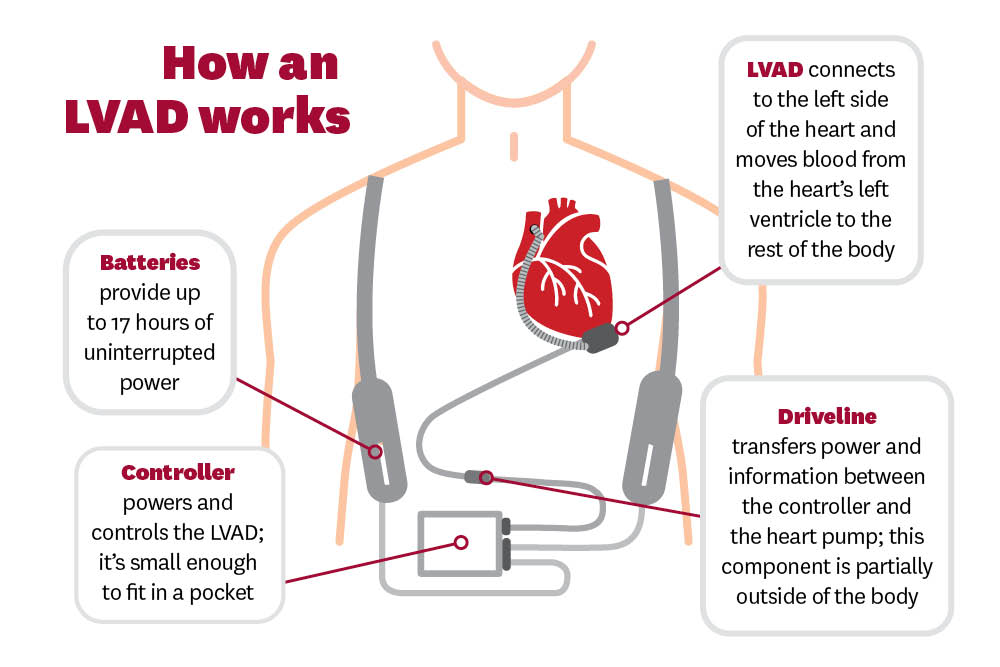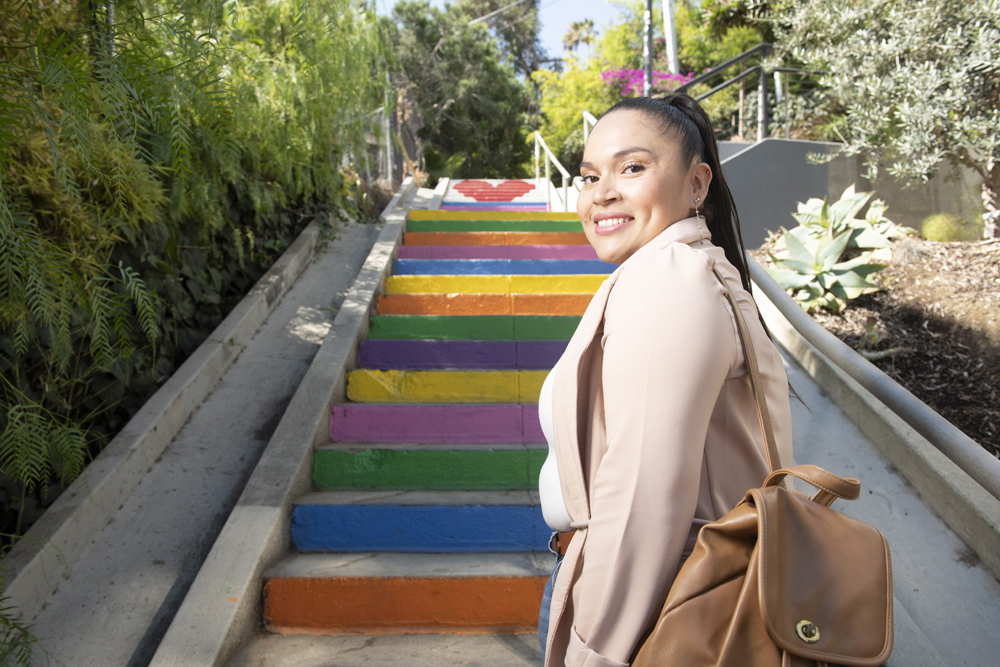
A mechanical device is keeping Zuleyma Santos alive as she awaits a transplant. She’s also spreading the word about heart disease in women.
Zuleyma Santos cuddled two-day-old Savanna to breastfeed, enjoying a quiet moment to bond before leaving the hospital. Awaiting them at home were husband, Christopher Valdez, and their 2-year-old son, Christopher Jr. (C.J.).
Suddenly, Zuleyma felt like she was suffocating. “Something’s wrong,” she cried, quickly handing her baby to a nurse. “I can’t breathe!”
Tests revealed the story: Zuleyma, only 35 at the time, had peripartum cardiomyopathy — a form of heart failure that occurs during the last month of pregnancy or the first few months postpartum, weakening the heart.
The exact cause is unknown, but the strain of pregnancy, along with hypertension and inflammation, are among the potential risk factors.
“I was young,” says Zuleyma, who was shocked by the diagnosis, “with no family history of heart disease.”
Nearly three years later, she is on a waiting list for a heart transplant. And for now, an implanted mechanical pump does what Zuleyma cannot: help the heart’s main pumping chamber send nutrient- and oxygen-rich blood to the rest of her body.
Advanced heart failure during pregnancy
Doctors at the community hospital where Savanna was born in August 2019 sent Zuleyma home with a prescription and advice to see a cardiologist. When the COVID-19 pandemic hit soon after, getting those appointments wasn’t easy.
About four months later, she began feeling better. “I wanted a normal life,” Zuleyma says. The Panorama City resident went back to her job in fashion retail and taking care of her children and her husband, who was facing cancer.
Then, Zuleyma’s heart condition caught up with her. Peripartum cardiomyopathy is uncommon and can be life-threatening, affecting between 1,000 to 1,300 women in the U.S. each year.
But it can be difficult to detect because symptoms of heart failure can mimic those of third-trimester pregnancy, such as swelling in the feet and legs, and some shortness of breath.
Fatigued and often breathless, Zuleyma spent more days in bed. One night in October 2020, she had so much trouble breathing that she told her mother to call an ambulance.
Zuleyma can’t recall being taken to a local hospital or her immediate transfer to Keck Hospital of USC. She woke in the intensive care unit, only to be told she was in advanced heart failure and would need a new heart.
LVAD pump gives Zuleyma a new lease on life
To save his patient’s life, Keck Medicine of USC cardiac surgeon Raymond Lee, MD, implanted a left ventricular assist device (or LVAD) in Zuleyma’s chest to pump along with her own heart.
But the device she received is designed for short-term support, and with a transplant date uncertain, Zuleyma wanted to go home. Her second surgery took place in December 2020, when Dr. Lee implanted a different LVAD that can support extended use.

Zuleyma’s LVAD is connected to a 10-pound battery pack she wears over her shoulders and a controller that can fit in her pocket. Zuleyma often stores the controller inside a purse or bookbag to coordinate with her outfits.
“The only thing I can’t do,” she says, “is jump off a boat into a lake.”
Eugene DePasquale, MD, a cardiologist and heart failure specialist with Keck Medicine, suspects Zuleyma may have had a milder case of peripartum cardiomyopathy during her first pregnancy in 2018.
“Younger patients are actually at greater risk of going undiagnosed or misdiagnosed,” says Dr. DePasquale, who also treated Zuleyma. “In someone Zuleyma’s age and younger, it can be easy for doctors to forget about the possibility of heart failure.”
The key, he adds, “is early recognition of a heart condition and referral.”
At the Keck Medicine Center for Advanced Heart Failure, a multidisciplinary cohort of specialists — including a dedicated LVAD team — meets weekly to evaluate care for every patient.
For Zuleyma, these experts are faced with having to enhance her body’s ability to tolerate a transplant.

Inspiring others to learn more about heart disease in women
During her pregnancy, Zuleyma developed antibodies against the proteins that appear on the cells of certain donors, which limited her potential organ pool.
Her Keck Medicine doctors are planning treatments to reduce the antibodies and to find her the best possible match, and they are optimistic.
“The mental side of transplant is half the battle,” Dr. Lee says. “Zuleyma is such a positive spirit.”
She’s now a single mom, with her husband’s unfortunate passing in March 2021. But music routinely fills the house as she, C.J. and Savanna dance together to Baby Shark and Sade tunes.
The 38-year-old also volunteers as a Go Red for Women ambassador for the American Heart Association, spreading the word about heart disease as the leading killer of women and the heart risks that can occur during pregnancy.
“I choose to make my heart disease an ally and not an enemy,” she says.
Zuleyma hopes her story gives strength to others and compels them to stay grounded amid the unexpected.
“We can’t control six months ago or six months from now,” she tells others. “We can only control our day to day.”
Topics


